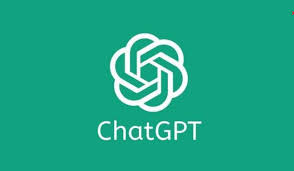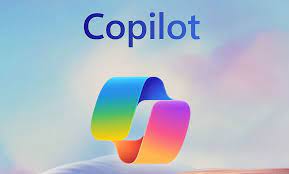Bard is now Gemini – What about Other Generative AI Tools? – Asrar Qureshi’s Blog Post #912
Bard is now Gemini – What about Other Generative AI Tools? – Asrar Qureshi’s Blog Post #912
Dear Colleagues! This is Asrar Qureshi’s Blog Post #912 for Pharma Veterans. Pharma Veterans aims to share knowledge and wisdom from Veterans for the benefit of Community at large. Pharma Veterans Blog is published by Asrar Qureshi on WordPress, the top blog site. Please email to asrar@asrarqureshi.com for publishing your contributions here.
 |
| Credit: Google Images |
 |
| Credit: Google Images |
 |
| Credit: Google Images |
 |
| Credit: Google Images |
 |
| Credit: Mojahid Mottakin |
Generative AI became the hottest topic with the arrival of Chat GPT from Open AI. Probably, the news spread more quickly for it than any other technological development so far. We understand that several more companies had been working on this subject, but Open AI took the lead, and are still striving to keep the lead. Google announced Bard and launched it shortly after. Microsoft brought their Copilot. Bard and Copilot were embedded in Google Chrome and Microsoft Edge to enhance user experience. Every day, new Apps are introduced which use AI to accomplish diverse tasks.
There is no doubt that the AI is revolutionizing our world. In a simple manner, I would like to offer some details about the three major AI tools. Initially, these language models sometimes returned inconsistent, irrelevant results, but these models are learning fast and becoming more enriched in a rather short span of time.
Bard's Development
Bard was originally launched in 2022 as Google's AI test kitchen, serving as a platform to experiment with and showcase the capabilities of the company's latest language models. It provided users with an early glimpse into the potential of conversational AI and allowed developers to explore its functionalities.
Transition to Gemini
In October 2023, Bard officially transitioned to Gemini. This shift reflects the advancements made in the underlying technology and marks a new stage in Google's AI development. Gemini represents a more evolved and powerful language model, offering several key improvements for users.
For Everyone –
• Enhanced reasoning and planning: Gemini can now process information, understand complex contexts, and generate responses that are more logical and consistent. This allows for more natural and productive conversations.
• Improved factual accuracy: Gemini draws from a wider knowledge base and leverages enhanced fact-checking mechanisms to deliver more reliable and trustworthy information.
• Greater language fluency: Gemini's language generation capabilities have been fine-tuned, making its responses more grammatically correct, stylistically diverse, and engaging to read.
For Specific Users –
• Gemini Pro: This paid subscription tier offers users access to more advanced features and capabilities, such as longer chat sessions, code generation, and data analysis.
• Gemini App: A dedicated mobile app provides a convenient way to interact with Gemini on the go, offering features like voice input and offline access (limited functionality).
• Integration with Google Products: Gemini will gradually integrate with various Google products and services, offering enhanced functionalities and a more unified AI experience.
Overall benefits for users:
• More reliable and informative responses: Gemini's improved accuracy and reasoning abilities ensure you receive trustworthy and relevant information.
• More natural and engaging conversations: The enhanced language fluency makes interacting with Gemini feel more like talking to a real person.
• Access to advanced features: Paid tiers and future integrations unlock powerful functionalities, catering to specific needs and workflows.
Overall, the transition to Gemini signifies a significant leap forward in Google's AI technology. Users can expect more reliable, informative, and engaging interactions, along with the potential for advanced features tailored to their needs.
It's important to note that Gemini is still under development, and new features and capabilities are constantly being added. As it continues to evolve, we can expect even more exciting advancements in the world of conversational AI.
Comparison of ChatGPT, Geminin, and Copilot
All three, Gemini, ChatGPT, and Copilot, are Large Language Models (LLMs) with impressive capabilities, but they each have their own strengths and weaknesses:
Similarities:
• All three are LLMs: They can process and generate human-like text, translate languages, write different kinds of creative content, and answer your questions in an informative way.
• All three are still under development: They are constantly learning and improving, with new features and functionalities being added regularly.
• All three can be accessed through different interfaces: They can be interacted with through text prompts, voice commands, and in some cases, even integrated into other applications.
Differences:
Underlying technology:
• Gemini: Based on Google's PaLM model, known for strong reasoning and factual language understanding.
• ChatGPT: Based on OpenAI's GPT-4 model, known for creative text generation and humor.
• Copilot: Powered by Microsoft's GPT-3 model, known for its integration with specific tools like code editors and email writing.
Target audience:
• Gemini: Aims for a general audience, offering both free and paid tiers with diverse capabilities.
• ChatGPT: Targets both individuals and businesses, with a free tier and a paid tier with enhanced features.
• Copilot: Primarily designed for developers and creative professionals, tightly integrated with Microsoft products.
Strengths:
• Gemini: Reasoning, factual accuracy, and information retrieval.
• ChatGPT: Creative text generation, humor, and engaging storytelling.
• Copilot: Code generation, data analysis, and automation within specific productivity tools.
Weaknesses:
• Gemini: May lack the creative flair of ChatGPT in certain situations.
• ChatGPT: Can sometimes struggle with factual accuracy and logical reasoning.
• Copilot: Limited to specific application areas and workflows.
Additional differences:
• Accessibility: ChatGPT has a wider free tier, while Gemini's free tier has limitations. Copilot currently requires a paid subscription.
• Focus: Gemini and ChatGPT prioritize user interaction and question answering, while Copilot leans towards assisting with specific tasks within applications.
• Integration: Gemini is gradually integrating with Google products, while Copilot is built directly into Microsoft tools. ChatGPT has fewer current integrations.
Ultimately, the best choice for you depends on your specific needs and preferences. If you prioritize factual accuracy and logical reasoning, Gemini might be ideal. If you value creative writing and humor, ChatGPT could be a good fit. And if you need assistance within specific applications, Copilot might be the right tool.
Remember, all three LLMs are constantly evolving, so it's worth trying them out and exploring their features to see which one best suits your needs.
Concluded.
Disclaimer: Most part of this blog post has been written with the help of Gemini. Any technical error may be attributed to Gemini. More importantly, for many people, AI is opening endless opportunities. Young people are especially encouraged to explore AI for education, learning, creating, and earning.



Comments
Post a Comment